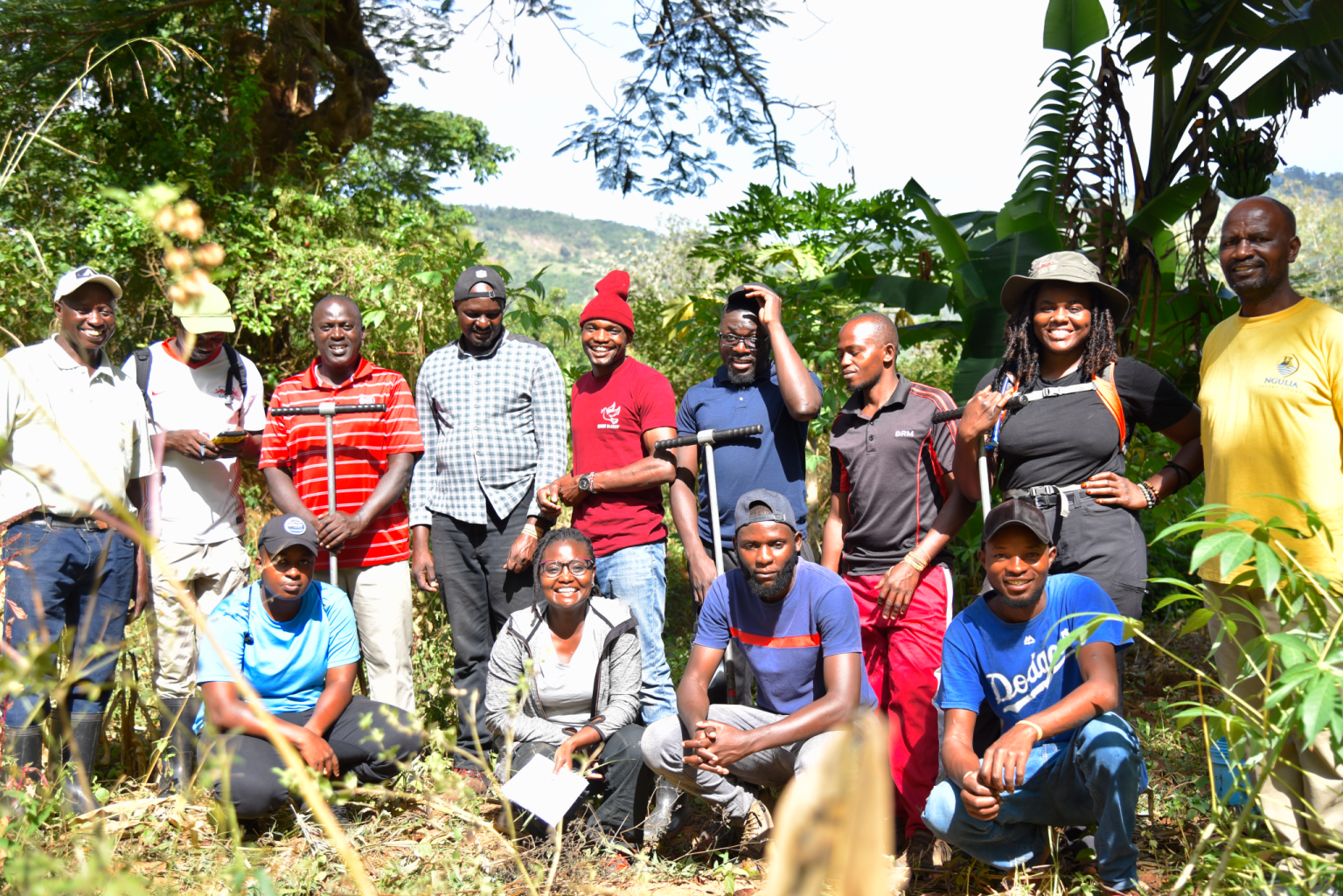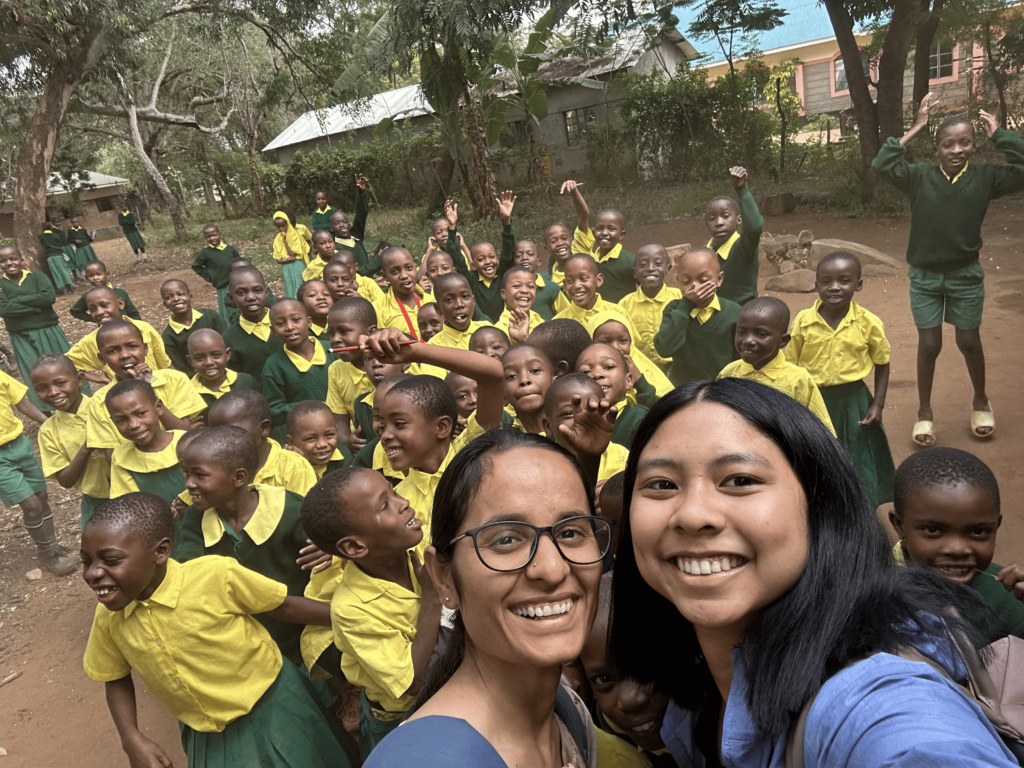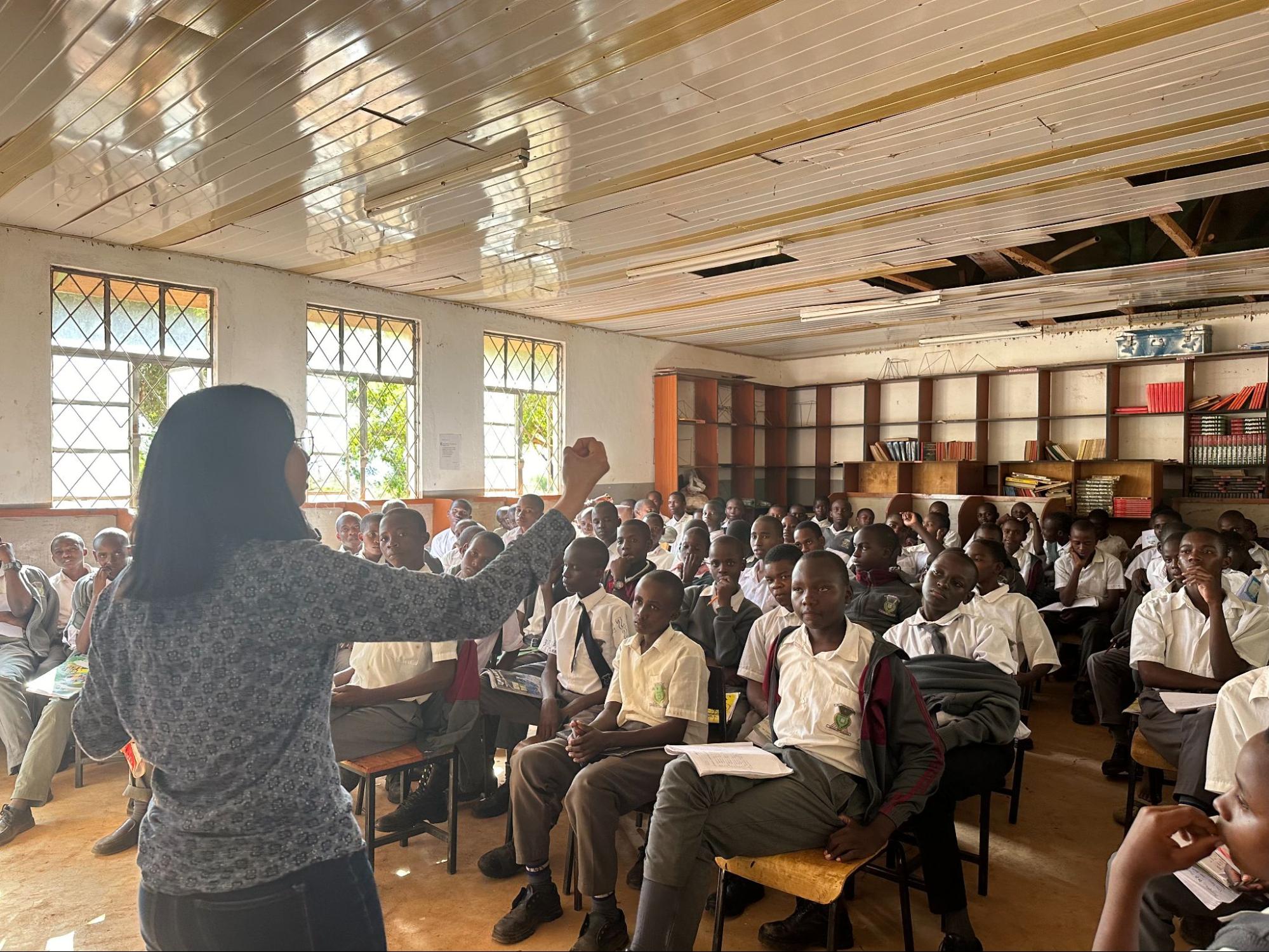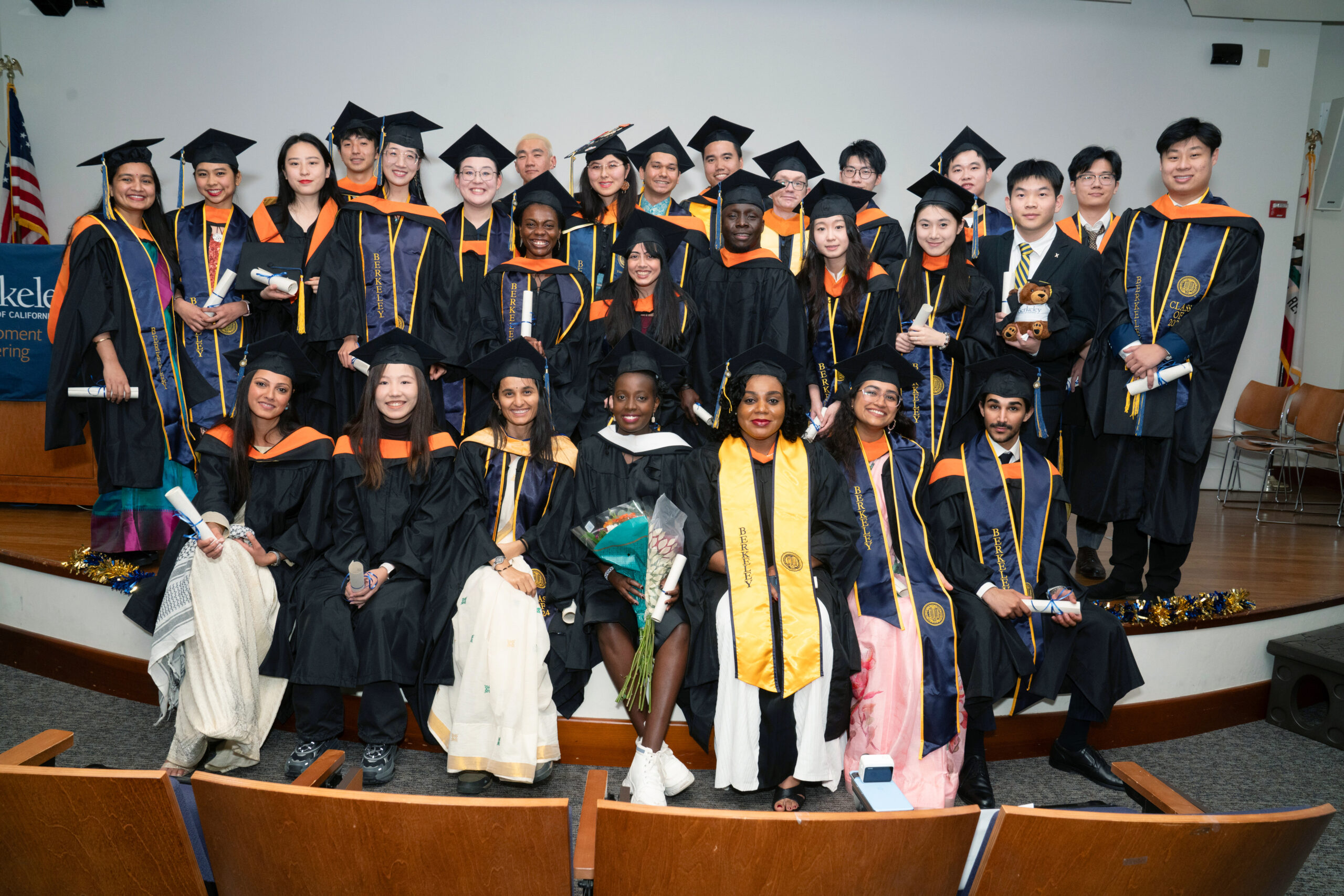As we step into this first year of the United Nations’ International Decade of Sciences for Sustainable Development, the world still circles around the issue of global poverty. By one estimate, from 1990 to 2015, extreme global poverty fell from affecting over one third of the world population to only one tenth, decreasing about 1 percent annually. With the COVID-19 pandemic, it picked back up: from 2020 to 2022, each year pushed 1 percent back into poverty.
As progress reverses at the same pace it was made, with this Decade comes new urgency. How do the growing global poor access clean drinking water? How do we protect public health and food security with affordable, low-pollution food sources? How do we curtail the impacts of climate change on the global economy while centering carbon-lowering initiatives? Sustainability is critical; technologies must take away from carbon emissions, the consequences of which disproportionately affect impoverished communities. With so many moving targets, how does one choose which issue to aim for and check all those boxes? And who will do it?
Soliver Ché Fusi is an environmental engineering PhD candidate at UC Berkeley. She hurries online to speak with me late in the Kenyan evening about her work at the Blum Center for Developing Economies. She’s telling me how the technology she’s working on hits on all these target issues — and it’s simple: sustainable agricultural fertilizer.
“If you break down all the complications and nuances, I would argue that we just want clean water…healthy, nutritious, adequate food, and clean air,” says Fusi. But how does fertilizer do this? She explains: It diverts the human waste stream. Fecal and organic matter are collected and burned down to biochar, then mixed with undiluted urine. Nutrients in urine, especially nitrogen, are recovered. This becomes a sustainable amendment that, when applied to crops, returns nutrients to soil.
Fusi adds that it keeps pathogens from drinking water — and more. “If we’re recovering nitrogen from urine…that’s preventing degradation of water bodies,” she says. So, good for wildlife as well. This cheap fertilizer would also save — and make — money compared to current sanitation systems, and be affordable to low-income smallholders. Their livelihoods would also be improved: soil pH, microbial health, organic matter, and (of course) soil fertility mean better crops and better food security. Soil carbon is also sequestered — good for emissions.
Fusi is just one of many students, alumni, and faculty leading projects like this through the Blum Center, a nearly 20-year-old institution dedicated to combating poverty near and far via technological and policy innovation. Many disciplines come together here, most notably Development Engineering. Berkeley, the Blum Center, and its affiliated faculty can be credited for establishing this field, which combines engineering with other disciplines like human-centered design, resource management, social sciences, and business management.
Fusi’s work shows the Blum Center is — no pun intended — fertile ground for sustainability-minded academics and on-the-ground practitioners eager to make global social impacts. And not just through research: but through actualizing technological solutions to global poverty. It’s a crucible of possibility for those pursuing careers, higher academia, and entrepreneurship that could meet global demands for lowering carbon, while simultaneously improving quality of life in under-resourced areas. Other programs at the Blum Center overlap with the Development Engineering master’s program and PhD minor, including the Global Poverty & Practice (GPP) minor, the Big Ideas Contest, and the Health Tech CoLab.
Without these resources Fusi feels she wouldn’t be where she is now: Kenya, by way of California, seeing this project’s real-life results. “The Blum Center…was really the gateway into implementing the work,” she says. “Both times that I’ve been to Kenya, they funded the travel, which is not a small thing. … To do work, you have to be situated in that context. [The Center is] going to put money into that.”
Fusi is not even from California, nor from Kenya: She’s from Cameroon. Another facet of the Center is its “melting pot” nature. U.S. and international students mingle and collaborate closely; so do undergrads, graduate students, PhD candidates, post-doc academics, and faculty. The Center itself suggests that, to find solutions to global poverty, we’ll need an equally global-diverse group to cross-pollinate within itself. This attracts many ambitious students from abroad to Berkeley — including Yicheng Wei, another international student from Xi’an, China and recent alum of the Master of Development Engineering program.
Wei works a different angle on global poverty at the Blum Center: epidemiology, targeting the COVID-19 pandemic. With her cohort, she studies ways to test wastewater for anticipating where the virus spreads through low-income communities, which often don’t have accessible testing sites. “It’s changed me a lot…especially my personality,” she says of the Blum Center’s international setting. “I had a lot of ideas, but didn’t know where to show them. … I’m also more willing to share my own opinions.”
Wei is now applying for a bioengineering-focused PhD, with an offer already from the University of Tokyo. That said, Wei has also felt very challenged by fellow academics and faculty here — though in a good way. “The rest of the team are all PhD, post-docs, and scientists,” she says. “They have much more experience compared to myself, but they’re not like, ‘Oh, you know nothing!’” One of these experts is civil & environmental engineering Prof. Kara Nelson, the Blum Chancellor’s Chair in Development Engineering. Nelson is faculty lead for Wei’s project, and Fusi’s fertilizer project as well. “Professor Kara Nelson…guided us to a correct pathway,” says Wei. “She’s really passionate about every question I have.”
In fact, many Blum Center projects come under the purview of Nelson, who’s been at Berkeley for 22 years. Her academic focus has long been on water — but especially wastewater and the human waste stream. It greatly streamlines the whole water issue, she claims. “What always motivated me, since the beginning of my career, is how we can bring more attention and creative solutions to addressing this waste issue,” Nelson says. “Adequate sanitation is necessary to address so many issues that are linked — improving children’s health, protecting the environment, increasing food security, and creating respectable job opportunities. Also, if we aren’t adequately managing our waste, then we aren’t addressing one of the biggest threats to safe drinking water.”
Besides water there are other issues — Evan Patrick and Lambert Lin, two other Blum Center students, focus on forest restoration in low-income countries for capturing atmospheric carbon. Without the Blum Center’s international backdrop, it’s possible these two would have never met or worked together. Patrick — a PhD candidate in Environmental Science, Policy, & Management — is from the United States. Lin hails from Beijing, a recent graduate of the Master of Development Engineering.
Patrick, Lin, and others on their team take reforestation approaches a step further than most: assessing how impactful plantings really are. While carbon programs may help offset climate impacts on vulnerable communities, they claim they must also be feasible, fair, and transparent to the smallholder landowners actually doing them — and more incentivizing. To achieve this, their work focuses heavily on remote sensing, data collection, and predictive “forest models” to improve these initiatives while “de-privatizing” the data, making it more openly accessible and affordable.
It’s not easy — like Wei, Lin says faculty readily challenge their ideas. Says Lin of one faculty member, “He actually criticized the projects. … It helped us to fine-tune our conclusion.” Because of the possibility of policymakers using their work as an excuse to cut down natural forests, Lin and team were able to develop clearer and more airtight conclusions.
Lin’s and Patrick’s project faculty advisor, Prof. Matthew D. Potts, may have had a role leading them to think differently. Potts first established and funded this project at Berkeley. Referring to Patrick’s and Lin’s work, he says that it’s the data collection itself that allows for these kinds of projects’ impact assessments. “How do you assess the impact that motivates people to act,” he asked, “but also helps you design a better program?
Similarly, other faculty — like Nelson — pivot students away from the obvious towards issues people might not want to touch. “How we manage our waste is something a lot of people aren’t as interested in, or as comfortable talking about,” she says about focusing on the waste stream versus water alone. “It’s not, like, everyone’s favorite topic of conversation.”
That said, students also feel they get to challenge how things are done, both inside and outside the classroom. Patrick brought his own criticisms of reforestation work. “Some of the re-plantings…are like little pine matchsticks. … It feels like they kind of only do it one way,” he says. “I think that a lot of tree planting programs have huge trust issues globally. Having a larger data-driven approach to actually show what is working, and what is not — because there are good examples going on.” Lin concurs: “Planting trees is not the best way to sequester carbon. But there are co-benefits. … It could improve water quality, and bring less buildup of nitrogen, improve biodiversity, and improve soil erosion problems.”
Fusi feels the same about academia in general, where disciplines can be siloed and the technology can overshadow the human context. “We are told that research has to be done in a certain way to be considered ‘real science’” — as if it were a politically neutral endeavor, she says. “I think I would have conformed into what mainstream academia says is appropriate.” But her colleagues at the Blum Center with similar backgrounds to hers inspired her. Her cohort “was always like, ‘This is not okay. These things don’t have to be this way.’”
While innovation and interdisciplinary thinking are important, so is scalability. For some this means narrowing one’s focus to the obvious for quicker results — like clean water, pure and simple. Jeremy Lowe, a PhD student in environmental engineering with a Development Engineering emphasis, helms a passive-chlorination water project through the Blum Center and the Pickering Lab that provides low-maintenance, affordable, and electricity-free chlorination that disinfects drinking water, and that any developing country could access.
It could also be brought to scale, and rapidly. “Two-point-three billion people use a water drinking source right now that could potentially be compatible with this technology,” Lowe says, referencing a study. But he is also realistic. “This is not going to be the end-all-be-all solution for water treatment,” he adds. “Chlorination is doing a great job at disinfecting pathogens from the water, but it doesn’t disinfect all pathogens effectively. And it doesn’t address chemical contaminants. This is where combining chlorination with other water treatment methods is helpful.”
For some Blum Center academics, taking aim at global poverty issues comes from a personal place — bringing solutions to problems they witnessed growing up. Says Lowe, “I grew up in rural North Carolina, and I grew up fairly poor. I think that ultimately shaped how I perceive the world, and how I interact with it. … There’s a lot of unneeded suffering caused by global poverty.”
For Fusi it’s personal too, tied to Cameroon and her home. “My aunt is restarting the farm she had lost because of the war,” she says. “All this knowledge I can use, in a more career sense…but it can also go back to the people that are closest to me, and not just family.”
The diverse figures at the Blum Center bring different criticisms, talents, and angles to global poverty issues that urgently need new perspectives. They come from all around a globe hurtling into the International Decade of Sciences for Sustainable Development.
Besides the Blum Center as their home, something else seems to unite many of these voices: a desire to serve. “My ultimate goal is to be of service to people,” says Lowe.
“I consider myself a servant,” Fusi adds. “Determining who I want to serve, and how I want to serve them.”




